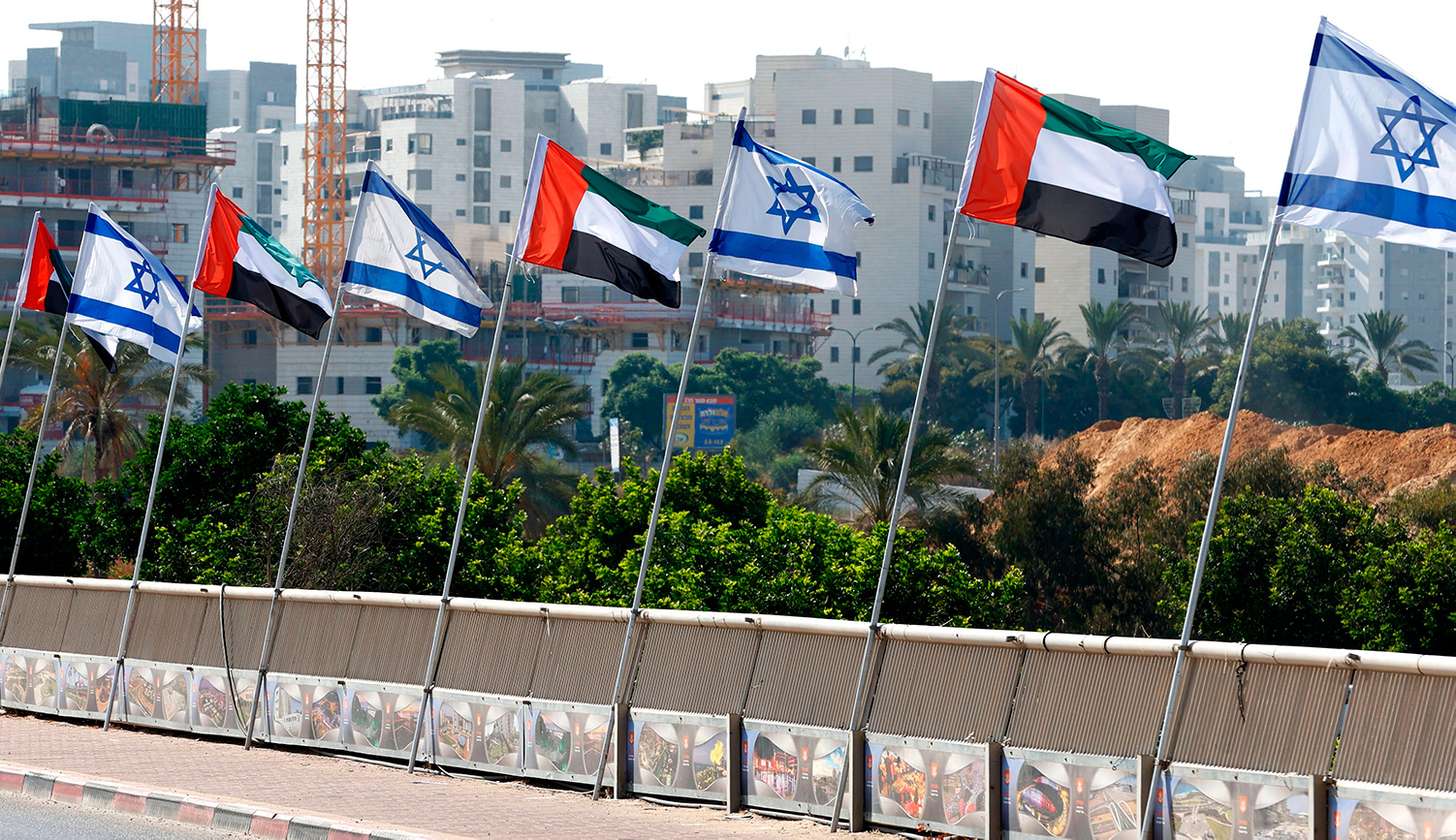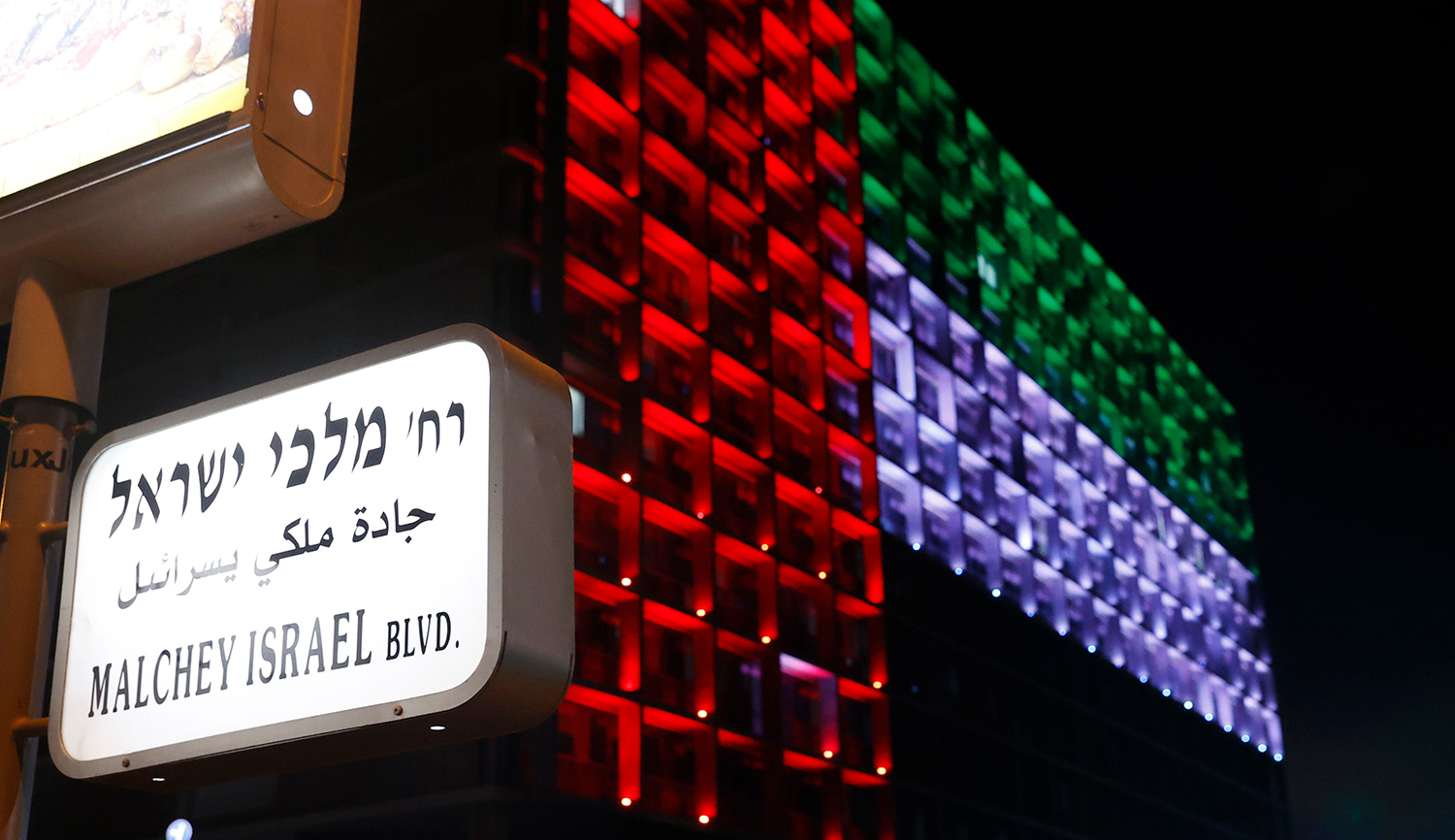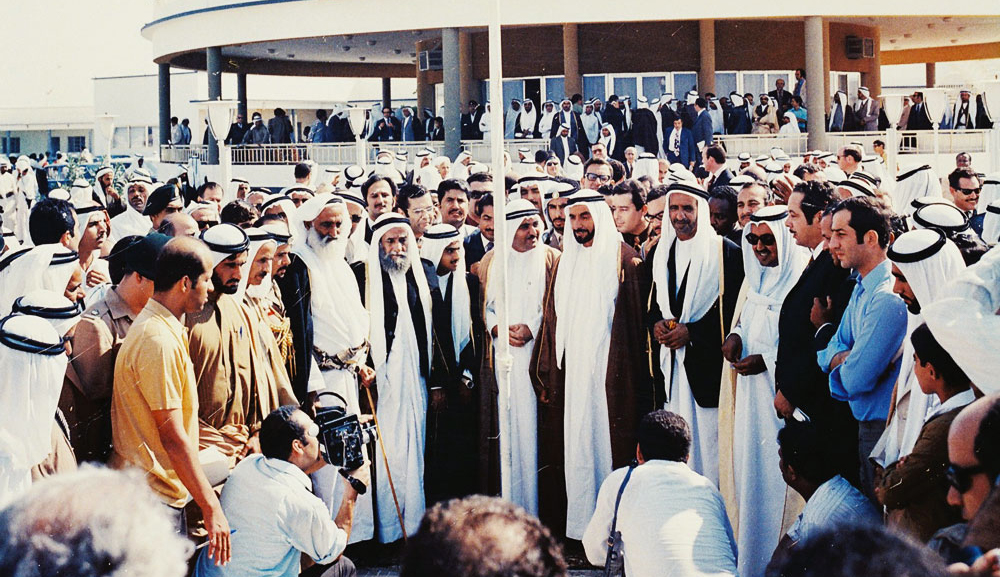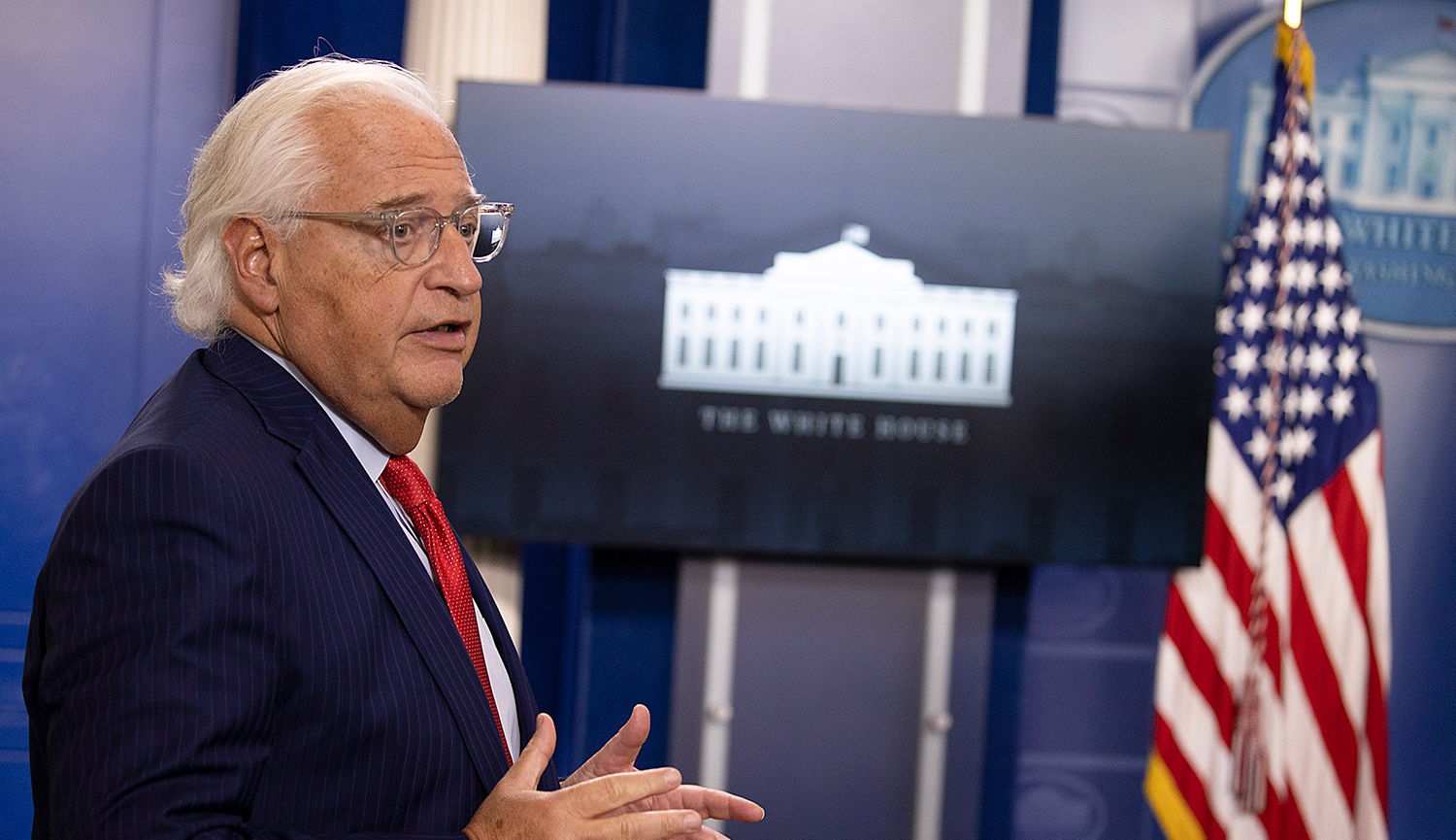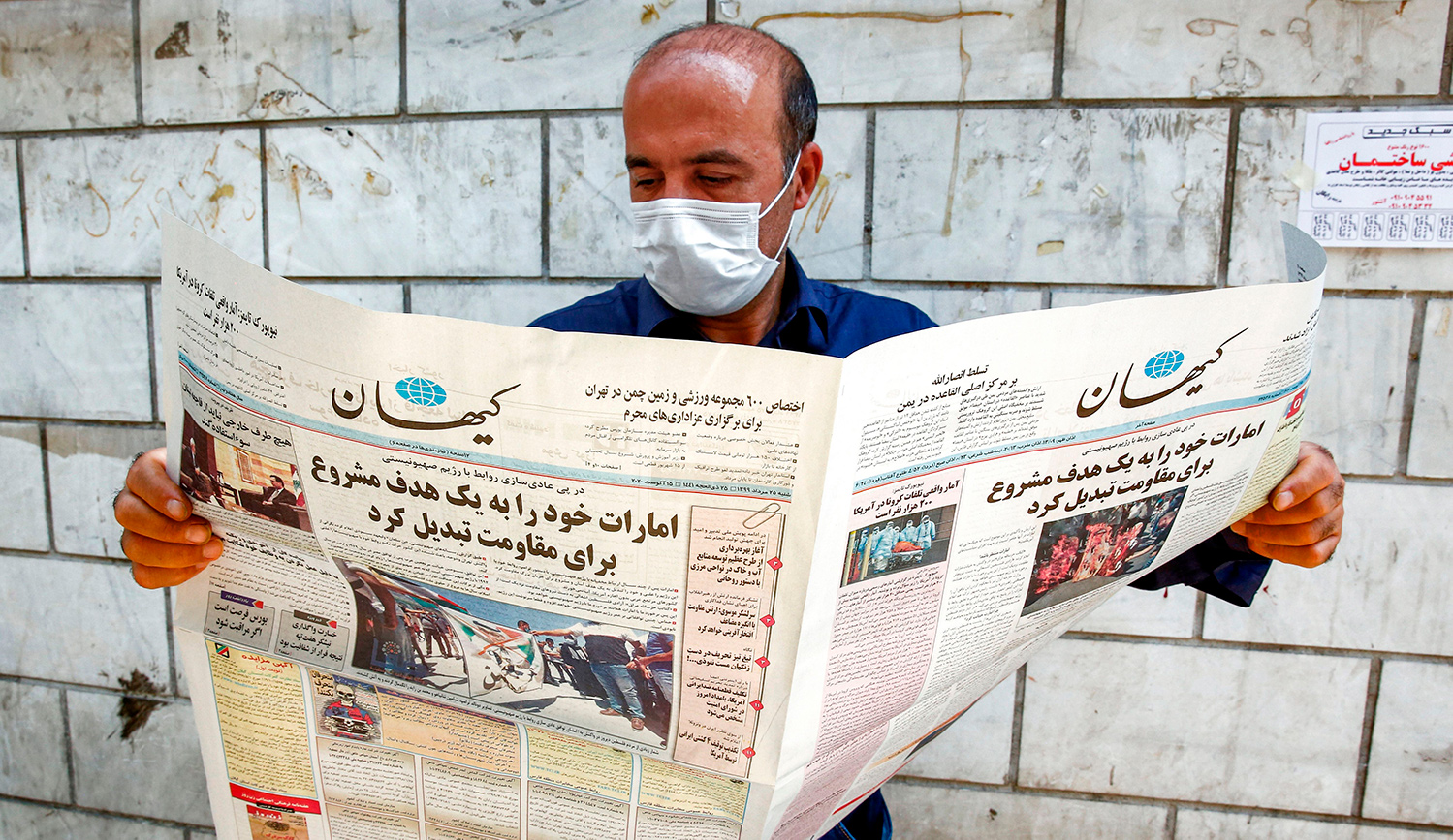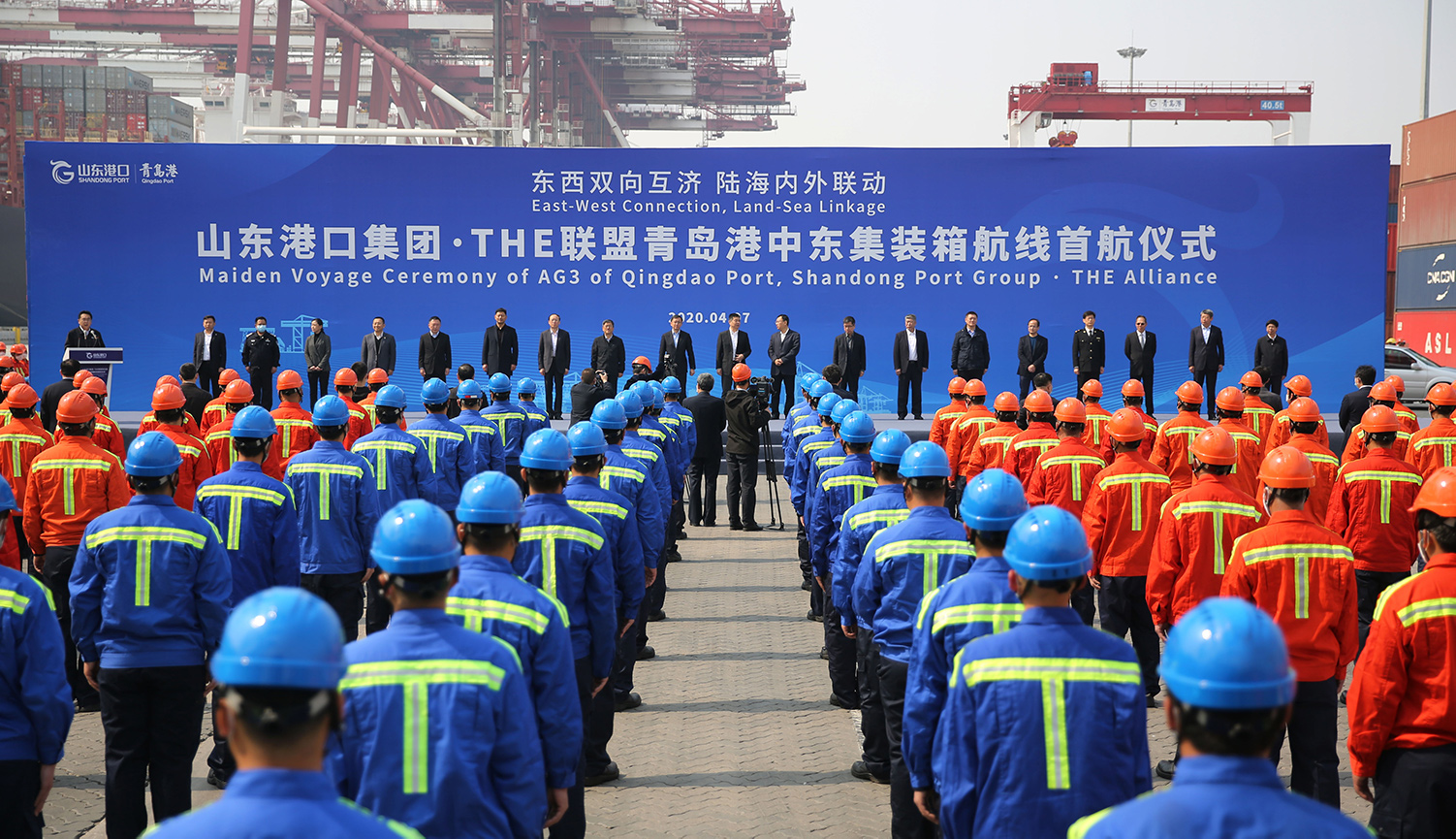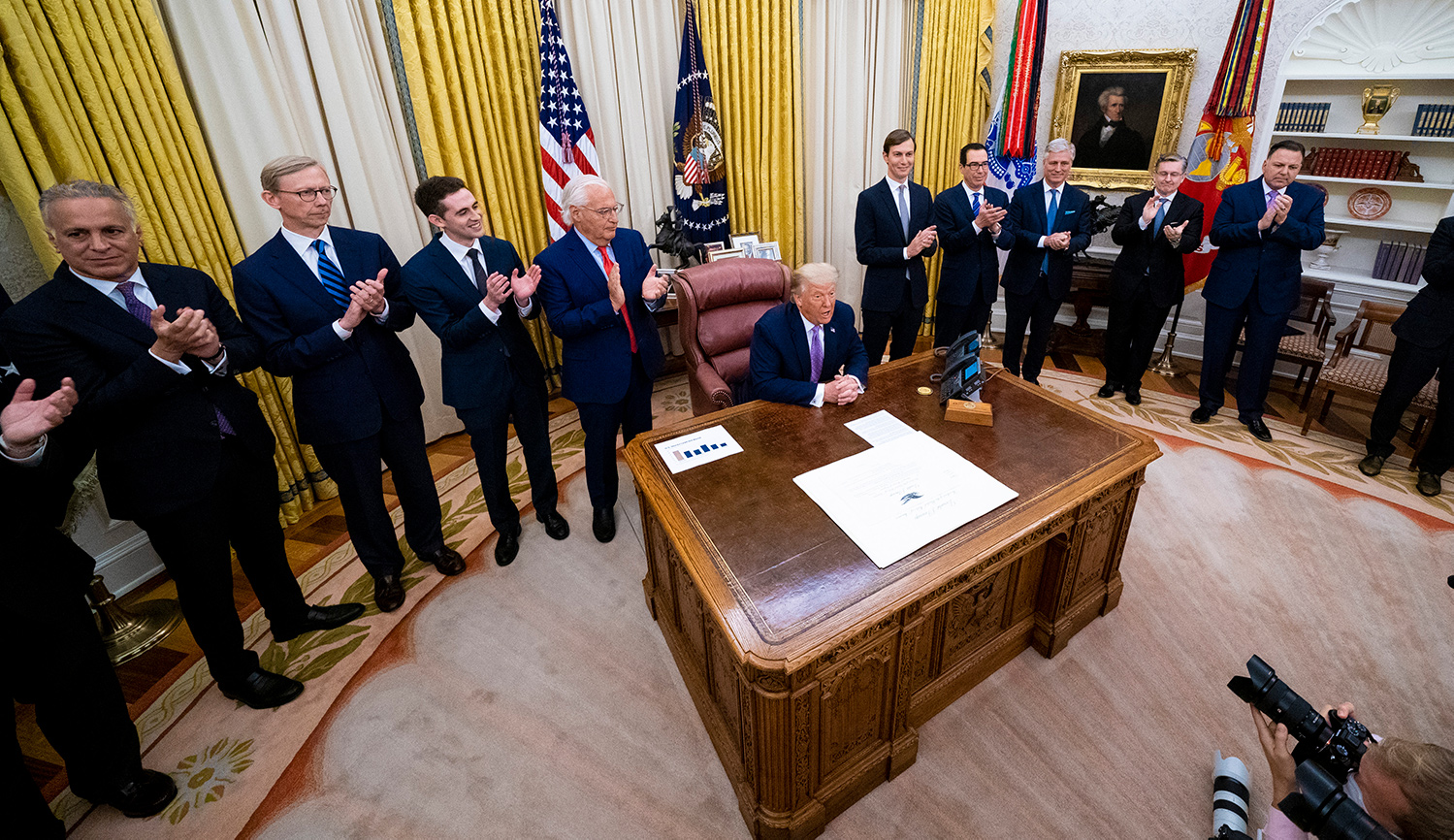Last week’s peace and normalization agreement between the United Arab Emirates and Israel has rightly been described as one of the most significant events in modern Middle Eastern history. The UAE is not the minor Arab confederacy of bedouin sheikhdoms it once was, but a leader of an entire Sunni Arab bloc, which means that its formal acceptance of Israel paves the road to wider Arab action.
There’s more going on, though, than even that. The agreement is actually the signal of perhaps the single most important transformation of the modern Middle East since the end of the colonial era: it marks the formal beginning of a new regional order. Since the end of that era in the middle of the 20th century, Arabs have been defined by two successive political orders, Arab nationalism and Islamism. Today, many of them are rightfully concluding that they need to break away from those orders and their toxic legacies. And to do that, they are concluding further, they need to break away from the mythology of Palestine that came alongside them.
Let’s jump back in time for a moment. At the eve of the departure of European colonial powers in the years after World War II, Arab revolutionaries were plotting out the foundations of what became in their countries the political reality of the second half of the 20th century. The rising political and social consciousness created by these revolutionary forces, known as Arab nationalism, was a mixture of Arab romanticism, hyper-nationalist European-style fascism, and Eastern Bloc socialism. The Arab nationalists claimed that every inch of land where Arabs are to be found was actually a part of the “great Arab homeland” and of a “single Arab nation with an eternal message,” and they called for a unified Arab polity that would transcend any national borders.
The 1950s and 1960s were particularly tumultuous, with various revolutionary camps like the Baathists in Syria and Iraq and the Nasserites in Egypt engaging in brutal competition among themselves and against the traditional monarchical forces that still ruled their countries. The first revolutionary military coup the region witnessed, in Syria in 1949, set a precedent; by the 1970s, no single Arab country was spared a coup, multiple coups, or a failed coup attempt. Arab nationalism had become the prime political and social force, forming the only ideological option for Arab masses and intellectuals and seriously threatening the monarchies still reigning in Saudi Arabia, the Arab Gulf, Jordan, and Morocco. While the internal conflict between the different revolutionary camps, evident in the failed attempt at unity between Egypt and Syria, did slow down Arab nationalism’s march, the movement was halted only by an external shock: the Six-Day War. The Arab states’ demoralizing 1967 loss to Israel forced the revolutionary Arab nationalist movements and republics to accept a measure of coexistence with the traditional monarchies.
It was within this tumultuous context that the mythology of Palestine was conceived and that the Arab nationalists chose it as their signature cause. Their choice served two purposes. First, by declaring that Arab lands and lives in Palestine were under assault, they successfully evoked nationalist sentiments in the masses. Second, it crowned the nationalists as the sole guardians of Arabness. This, in turn, created an additional effect. It meant that identification as an Arab became intricately tied to hostility towards Israel, pressuring everybody—including Arab royalists who were opposed to Arab nationalism—to heighten their anti-Israel rhetoric so as to seem better Arabs.
In this way, national liberation and the fight against imperialism and Arab divisiveness all became expressed in the language of hostility to Israel—language increasingly steeped in the most toxic European racial ideas. Anti-Semitism in the Middle East had historically been religiously motivated and creed-based. No longer. New Arab history textbooks, still currently in use, introduced the idea that Arabs were the descendants of the ancient Canaanites, Phoenicians, and Philistines, and the now-widespread notion that Jews were a foreign ethnic group engaged in systematic and conspiratorial efforts to undermine the mystical union between the people and their fatherland.
After the Six-Day War, Arab nationalism was a movement without momentum, yet its political, institutional, social, intellectual, and folkloric legacy remained. The death of Arab nationalism might have started a gradual breakaway from the no-longer-useful mythology of Palestine, if it wasn’t for the sudden rise of Islamism in the 1970s to replace and even surpass it as the primary force shaping Arab social and political consciousness. Islamism, though a religious rather than a nationalist creed, nonetheless benefited from the unitary regional consciousness created by Arab nationalism and positioned itself as the true and natural successor ideology. Along the way, Islamists picked up the already-established mantra of “Palestine!” and made it their own.
The rise of Islamism forced Arab states and establishments—both the republics formed by Arab nationalism as well as the surviving monarchies—to work together to maintain a status quo of power, a goal that became absolutely vital after Islamists achieved victory in the Iranian Islamic Revolution and after they assassinated Anwar Sadat. Nothing less than their survival was on the line. This meant that they had to maintain tangible support for Palestine, a rhetorical commitment to its liberation, and, at least in public, a clear distance from Israel. This more than anything explains why post-Sadat Egypt never warmed further to Israel, its new partner in peace.
Meanwhile, Islamists continued to push Palestine to the Arab masses. Because of its theological and transnational nature, the Islamist movement cared less about the ethnonationalist claim of the Palestinians against that of the Israelis, preferring instead to reframe the conflict in the older terms of religious-based anti-Semitism. Hatred toward Jews was thus reintroduced as not just part of Arabness but also as part of Muslimness. Likewise, in attempting to bring Islam to the center stage of Arab political life, Islamists had to make the Palestinian cause about Islam, not Palestine itself. In popular culture, to oppose Israel became not just an Arab duty but also an eternal moral truth; the political cries against “Zionist colonialism” became theological ones as well. At this point, things became so overloaded with ideology and cross-bred hatred that Arab states lapsed into a kind of stunned silence, unable to deal openly with Israel or even to speak its name in public. (Hence the introduction of absurd formulas like “the Zionist entity.”) Arab public opinion about Israel likewise became something of an obscure inarticulate mess.
This had terrible effects not for Israel, which would do just fine, but for the Arab states and publics themselves. Because anti-Zionism and anti-Judaism were so core to the prevailing ideologies of Arab nationalism and Islamism, inarticulacy and inability to cope spread to all matters of state. Things lasted in this stuck, frozen phase for decades. The political rhetoric of the Arab establishments could not free itself from the legacy of Arab nationalism; visions of the unity of the Arab nation still loomed large, however empty they were. Eventually, the official statements of Arab unity, usually uttered during Arab League summits, became the subject of ridicule within every coffee shop, while the continuous condemnations of Israel followed by no meaningful action created only suspicion and frustration with Arab rulers. This situation, in turn, only empowered the Islamist polemic against the establishment and armed it with more ammunition for attacks against the insincere and hypocritical Arab states.
On the back of decades of economic failures and administrative corruption, the breaking point of the freeze finally arrived in 2011, with the Arab Spring. Almost all the republics created by Arab revolutionaries faced complete collapse, and Islamist forces emerged as immediate replacements, aided by imperialist and anti-Arab neighboring powers like Iran and Turkey. The states that survived the Arab Spring were the same traditional Arab monarchies that had survived Arab nationalism half a century earlier. Indeed, of all political arrangements in the Middle East over the last century, it is the monarchies that have proved most resilient. In the past decade, they’ve together formed a new rising bloc hoping to stabilize the region. In their efforts, they have successfully reached the most logical and pressing conclusion in Middle East politics: the mythology of Palestine is at the core of the entire toxic legacy of the 20th century and of the failed pathologies of Arab nationalism and Islamism. If the Middle East is ever to become stable, it needs to break away.
The transition into a new Arab political and social landscape is, to be sure, not limited to the issue of Israel and ideology. It touches every aspect of society. The new Middle East requires a new political consciousness, which begins with the death of the old one. The necessity of such a new order has only increased as the future and lesser role of the United States in the region has become clearer and clearer over the last ten years. And this requires an overhaul of Western understanding and analysis of Arab politics. The traditional Arab political fondness for a totalizing ideology with solutions to all issues does not exist anymore. Where they once marched for pan-Arabism, Egyptians now march only for economic and political reform. Once inflamed about sectarian tension, Lebanese and Iraqis now rise to protest corruption. Many Arabs no longer speak of the question of tradition versus modernity but of the discrete issues of economic development, human rights, the condition of women, and so on. A growing new class of Arab thinkers is increasingly convinced that what is needed is social transformation and not the promotion of Jeffersonian democracy. Religion too is increasingly being seen as a component of social life and that it will only increase in health if social life does.
It is in this historical context that the major significance of the UAE-Israel agreement becomes clear. By announcing its acceptance of Israel, the UAE, along with its regional allies and clients, formally signaled that the Middle East is entering its post-Arab nationalist and post-Islamist phase—which is, of course, why the agreement has been met with such hostility from Islamists, Arab nationalists, and imperialist regional powers like Iran, Turkey, and Qatar. The agreement isolates these actors politically; that is already well known. What is less well known but far more important is that the agreement isolates them ideologically as well. It is too early to speculate on the future shape and structure of a self-liberated and less inarticulate Middle East. One thing, though, is certain; it will be based on individual national identities rather than on a vision of collective Arab or Islamist political action.
One more thing. This new reality clearly poses to the Palestinians a profound problem that nonetheless offers them hope. The present leadership of the Palestinian cause is either the product of mid-century Arab nationalism—as with the Palestinian Authority—or of Islamism—as with Hamas’s Islamic resistance. With this agreement and the new Middle East it signals, the Palestinians receive an ultimatum: if they wish to have an independent state, they must find new leadership that belongs not to the last century but to this one.
More about: Arab nationalism, Islamism, Israel & Zionism, Israel-UAE Peace Agreement, Middle East, United Arab Emirates

